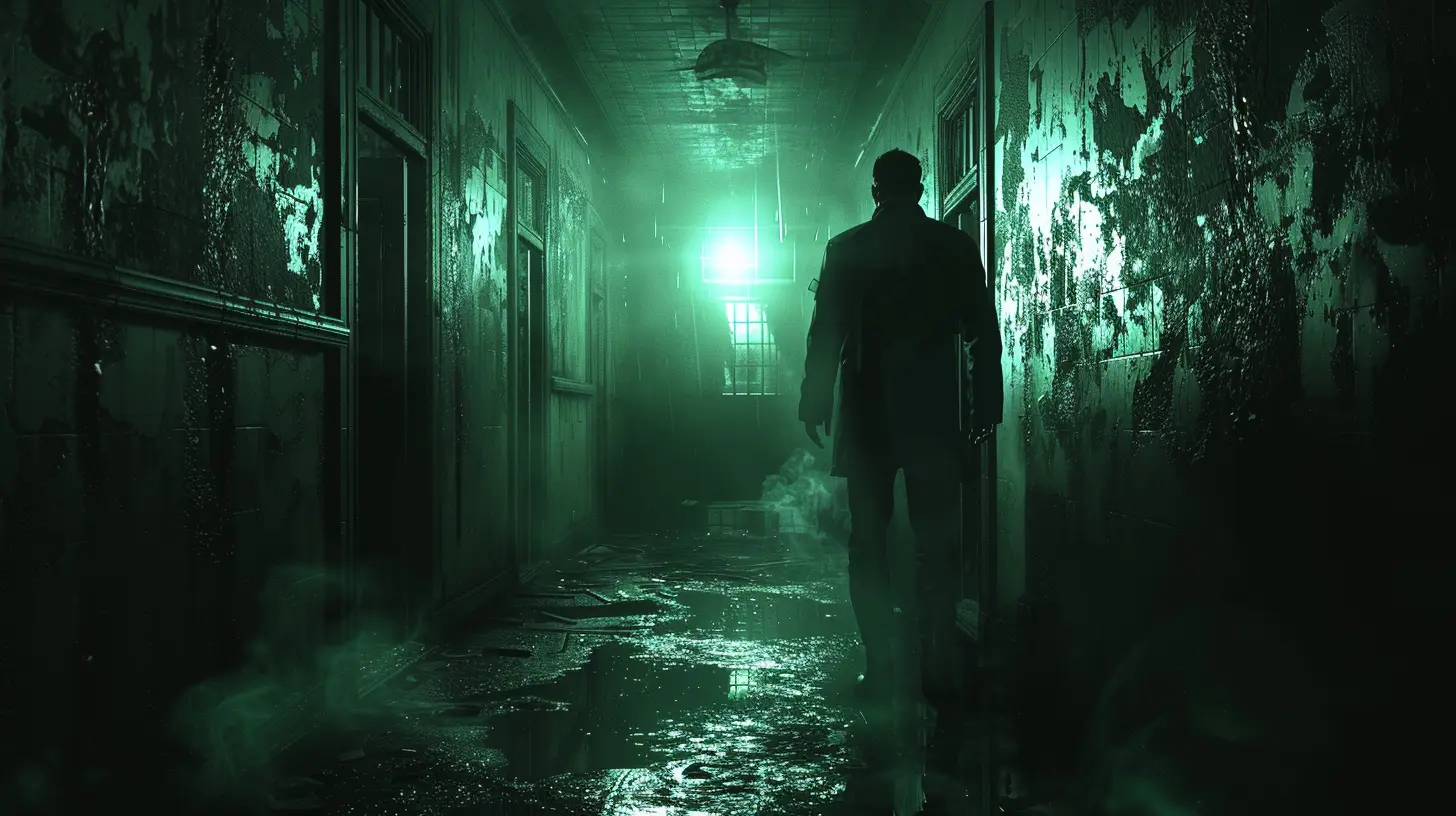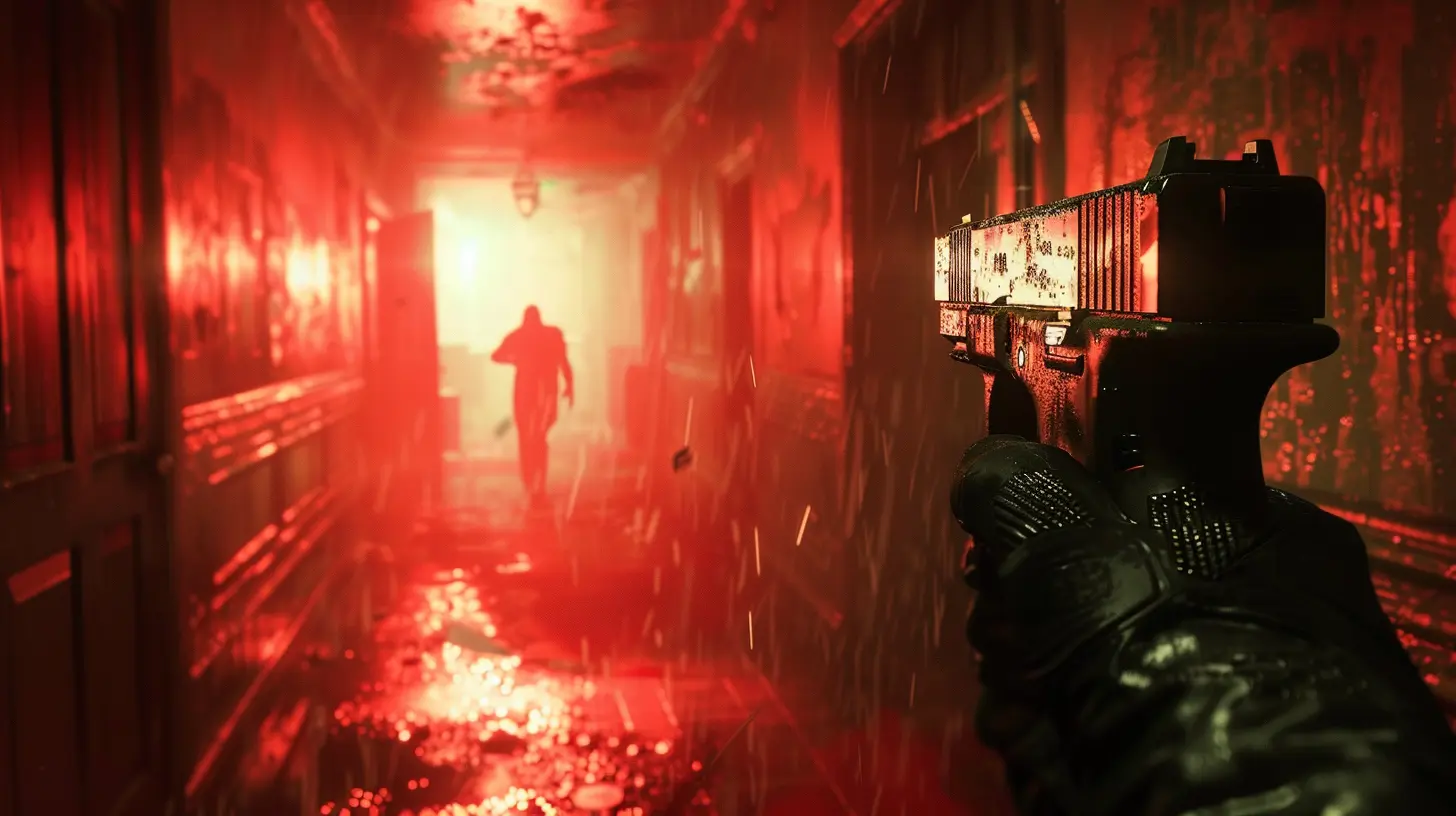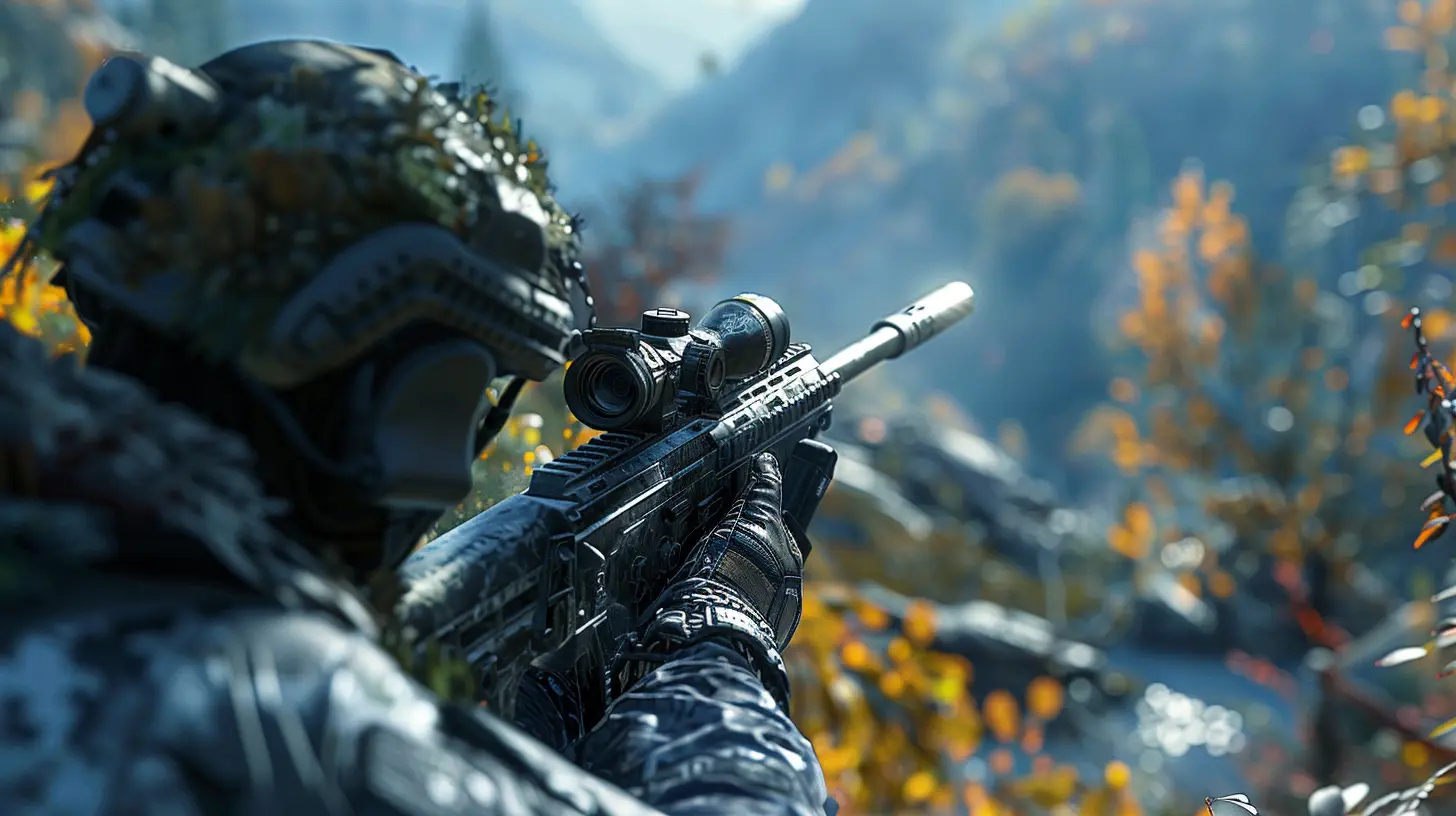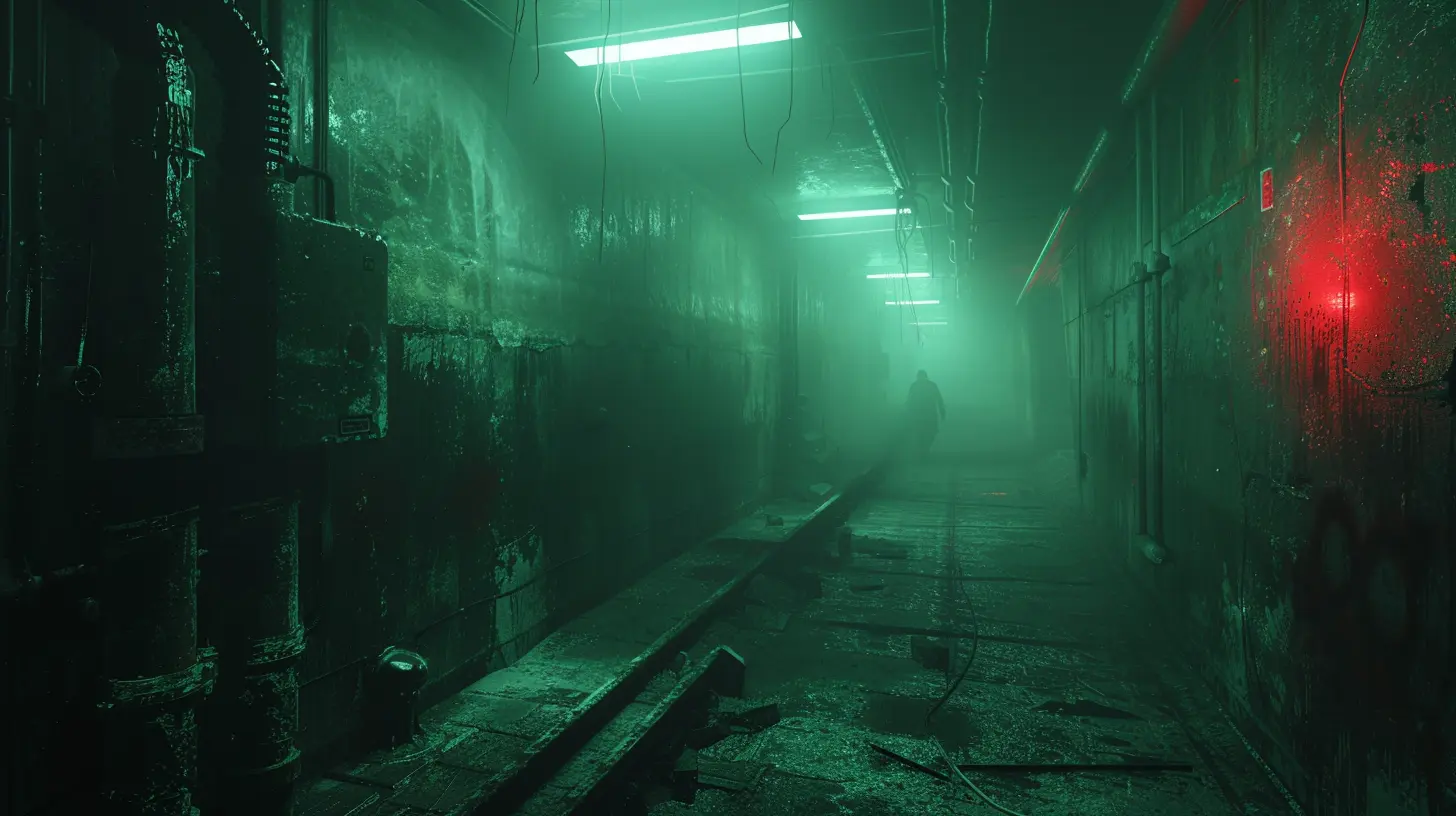Why First-Person Stealth Feels More Personal
15 November 2025
Let’s get one thing straight: when it comes to stealth in video games, the first-person perspective doesn’t just raise the stakes—it pulls you in by the collar and whispers, “This is personal now.”
You’re not just playing some faceless operative hidden behind a camera. You're there, in the shadows, feeling your heartbeat echo in your ears as a guard walks by inches away. It’s intimate, intense, and way more immersive than most third-person sneaky escapades.
So, let’s crack this wide open. Why does first-person stealth just…hit different?
You’re Not Watching a Spy—You Are the Spy
Ever played a stealth game in third-person and felt a bit like you were watching someone else do all the impressive sneaking? Yeah, exactly.When you’re in first-person, that distance disappears. You’re not guiding a character—you’re living their story. Sliding behind a crate? That’s you feeling the grain of the wood under your fingers. Holding your breath while a flashlight beam creeps toward your hiding spot? Also you. Every little move feels personal, like you're right there, taking real risks.
First-person stealth forces you to own your mistakes. You don't get to blame the camera angle or weird animations—if you got caught, it's because you misjudged the timing or got greedy. That level of responsibility? It ties you emotionally to the gameplay in a way that third-person just doesn't match.
Visual Limitations Create Tension
Let's be brutally honest here: third-person stealth games can sometimes feel like cheating.You know what I’m talking about—rotating the camera to peek around corners or scan over walls like you’ve got psychic powers. But in first-person? That’s gone. You see only what your character sees. If you want to peek, you gotta physically move. Every corner becomes a risk, every blind spot a gamble.
This visual restriction ramps up the tension like crazy. It’s like walking through a haunted house with blinders on—anything could be waiting around the next bend, and you've got zero clue until you check it out yourself. That limitation isn't a flaw—it's the secret sauce that makes first-person stealth feel raw and real.
Sound Matters More Than Ever
In first-person stealth games, your ears become just as important as your eyes. You start to depend on the smallest audio cues—the muffled footsteps on upstairs floors, the distant hum of security cameras, that subtle "clink" of a dropped guard’s keycard.You listen because you have to.
And when devs do it right, the world becomes an orchestra of tension. You stop, hold your breath, and tune into the environment like your life depends on it. That audio sensitivity makes stealth feel alive, and you, as the player, feel like a predator with an acute awareness of your surroundings.
Stealth Becomes More Than Gameplay—It Becomes Survival
When you’re navigating a stealth game from the first-person view, hiding isn’t just a strategy—it’s survival. Your combat options are usually limited. You can’t just roll out of cover, pop a guard in the face, and keep moving like nothing happened. Nah, if you get seen, you’re probably toast.This fragile tension makes every move deliberate.
Think about how you feel playing a game like Thief or Dishonored. Every step, every corner, and every shadow is calculated. You hyper-focus on enemy patrol patterns, lighting, your own noise level—it’s almost like becoming a ghost in the machine. One wrong move, and everything spirals into chaos.
That sense of vulnerability? That’s what makes it personal. You’re not a superhero. You’re just a clever human trying not to get caught.
The Environment Feels Alive
In first-person stealth games, the dark corridors, dimly lit hallways, and abandoned offices don’t just set the scene—they become your tools.You start looking at the world differently. That vent shaft? That’s a lifeline. The flickering light bulb? It’s a hazard you might need to shoot out or avoid entirely. That box? It’s now your best friend for the next 10 seconds because it’s the only thing between you and the patrol coming your way.
This kind of environmental intimacy can't be overstated. The world isn’t just there for aesthetics—it's a layered, interactive playground where every nook and cranny has its own purpose. And being shoulder-deep in it makes the whole experience feel incredibly personal.
You Feel Every Close Call In Your Bones
You know that rush? When a guard walks right past your hiding spot and you swear your pulse just doubled? That’s the magic of first-person stealth.Because you can’t see behind you or to your sides without moving, the anxiety starts to build. Did he stop? Is he looking your way? You’re forced to wait and feel your way through it—trusting your ears more than anything else.
And when it works? That satisfaction is unreal. It’s not just "I beat the level” vibes—it’s "I just pulled off a damn heist" energy.
Immersion, Baby. All the Way.
Let’s not overcomplicate this—first-person stealth is immersive AF.The HUD is usually minimal. The view is from your eyes. The danger is up close, not off in the distance. It creates a visceral feedback loop where every tiny success and failure is amplified. You’re not just playing—you’re existing in that space.
Games like Alien: Isolation absolutely nail this. You’re constantly checking your motion scanner, peeking through vents, hiding in lockers. Those moments wouldn’t hit nearly as hard from a third-person view. Why? Because it would feel like you’re watching a horror movie. In first-person, you’re in the horror movie.
Storytelling Feels More Intimate
Ever notice how a lot of first-person stealth games go heavy on atmospheric storytelling?There’s a vibe—a feeling—that these games create just by putting you in the protagonist’s shoes. You're not just reading logs or listening to audio diaries; you’re experiencing the world in a piecemeal, voyeuristic way. You see blood trails leading to locked rooms. You find cryptic messages on walls. You’re snooping through someone’s life in a way that feels wrong—and that's the point.
First-person stealth doesn’t just tell you the story. It lets you feel like an intruder into the narrative, uncovering truths you were never supposed to find.
It’s stealth, not just in gameplay mechanics, but in storytelling itself.
Risk + Reward Feels More Earned
Pulling off the perfect sneak feels ten times better when it’s from your own eyes.You planned the route. You timed the patrols. You disabled the cameras. You knocked out the guard, hid the body, and made it to the objective without making a sound.
And the game didn’t spoon-feed you any of it.
That sense of agency—the raw, unfiltered cause-and-effect of stealth in first-person—means every win feels damn near heroic. Not because the game said so, but because you did it. With your brain. And your gut. And a whole lot of nerve.
Multiplayer? Whole New Level of Tension
This applies more to games that flirt with multiplayer stealth (looking at you, Dark and Darker, Deceit, or Phantom Doctrine if you remember that experimental stuff) but the added tension of first-person makes online stealth absolutely bonkers.You’re not just hiding from AI guards—you’re up against other players with the same skillsets and motivations. Every encounter turns into a psychological battle. Are they going to breach that door? Did they spot you? Is that noise coming from a teammate… or a trap?
The stakes are real, and the paranoia? Off the charts.
Why It Sticks With You
You ever finish a good first-person stealth game and find yourself checking corners in real life?Okay, maybe not literally—but it gets in your head. It reshapes how you think. It makes you hyper-aware, methodical, and patient in a way few other game genres do.
That’s the power of immersion. That’s the power of perspective. That’s the power of first-person stealth.
Not Without Its Flaws… But Worth It
Sure, first-person stealth isn’t perfect. It can be disorienting. You might struggle with spatial awareness. And yeah, you’ll probably bump into walls and furniture more than you'd like to admit.But that’s just the price of intimacy.
Because what you lose in convenience, you gain in connection. The clumsiness? It makes success feel more authentic. The limitations? They make every escape more rewarding. And the fear? That’s what makes it feel real.
Final Thoughts: It’s You Against the World
At the end of the day, first-person stealth feels more personal because it is.You’re not spectating. You’re inhabiting. You’re not just avoiding enemies—you’re outwitting them from inches away. You're crawling through ventilation shafts, hugging the shadows, and praying that your last move wasn’t your last mistake.
When a game forces you to see the world through your character’s eyes—flaws, fears, and all—it becomes an experience you don't just remember. You feel it. And that makes all the difference.
all images in this post were generated using AI tools
Category:
Stealth GamesAuthor:

Madeleine McCaffrey
Discussion
rate this article
1 comments
Uzi Gutierrez
This article brilliantly captures how first-person stealth enhances immersion, making players feel intimately connected to their character's choices and environment. It's a refreshing take on stealth mechanics.
November 16, 2025 at 3:34 AM

Madeleine McCaffrey
Thank you! I'm glad you found the article resonates with your experience of first-person stealth. It truly adds a unique layer to player immersion!


